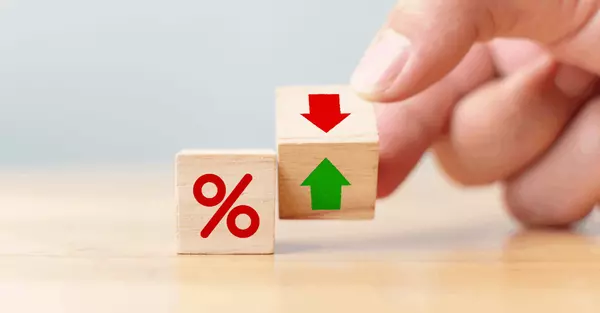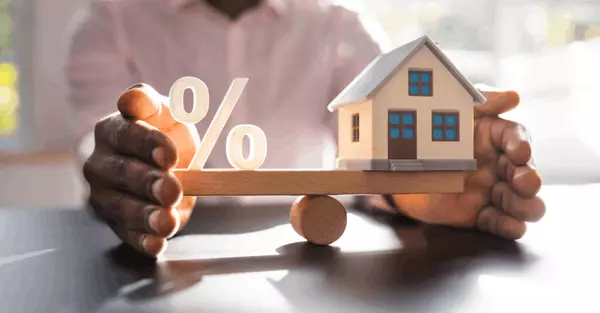Understanding Your Real Estate Needs: When to Buy, Sell, or Stay

The real estate market can often feel like a whirlwind of fluctuating prices, interest rates, and trends that seem impossible to keep up with. Whether you’re a homeowner or a potential buyer, knowing when to buy, sell, or stay put in your current home is critical to making the best financial and lifestyle decisions. This guide will help you assess your real estate needs and provide insight into whether now is the right time to make a move or stay where you are.
Assessing the Current Market Conditions
Before making any decisions, it's important to understand the current real estate market conditions. Key factors to consider include:
- Housing Supply and Demand: Is there a shortage of homes available, or is the market flooded with inventory? A seller’s market, where demand outpaces supply, is an optimal time to sell, while a buyer’s market, where supply exceeds demand, may offer more options and negotiating power for buyers.
- Interest Rates: Interest rates heavily influence mortgage costs. Low rates can create a great opportunity for buyers to enter the market or for homeowners to refinance, while high rates may make buying less attractive. Conversely, sellers benefit from a broader pool of buyers when rates are low.
- Economic Outlook: Look at the overall economy, including employment rates and consumer confidence. A strong economy with job stability encourages home buying, while economic uncertainty might suggest holding off on large purchases like a new home.
When to Buy a Home
Purchasing a home is a significant financial commitment, and the decision should align with both your long-term financial goals and your current lifestyle. Here are some signs it might be the right time for you to buy:
- Stable Finances: Buying a home makes sense when you have a stable income, a solid credit score, and enough savings for a down payment (typically 20% for the best mortgage rates). Being able to cover closing costs, moving expenses, and having an emergency fund is also essential.
- Interest Rates Are Favorable: Low interest rates can significantly reduce the overall cost of homeownership. If rates are low, you’ll save money on your mortgage over time, making it an attractive time to buy.
- Renting No Longer Makes Financial Sense: If you're currently renting, it might be time to buy when your monthly rent is comparable to or higher than a mortgage payment for a similar property. You could be building equity instead of paying rent to a landlord.
- You're Ready for Long-Term Commitment: Buying a home is most beneficial when you plan to stay in one location for at least five years. This timeframe allows you to build equity and offset the upfront costs of buying and moving.
- The Market Favors Buyers: If you’re in a buyer’s market where there are more homes for sale than buyers, you may have more negotiating power and can find a home for a better price. This is an opportune time to purchase your dream home or make a move up the property ladder.
When to Sell a Home
Selling your home can be a tough decision, especially if you're emotionally attached to it. However, certain circumstances may make selling the best option. Consider selling if:
- It’s a Seller’s Market: In a seller’s market, there are more buyers than available homes, meaning you can often sell your property faster and at a higher price. Low inventory, high demand, and rising home prices can create the perfect opportunity to sell.
- Your Home No Longer Fits Your Needs: If your family has grown, you need more space, or you’re looking to downsize after the kids have moved out, selling and finding a home that fits your current lifestyle may be the best option.
- Financial Reasons: If your mortgage payments are becoming too burdensome or if you have significant equity in your home and want to liquidate it for other investments, selling might make financial sense. Additionally, if the property has appreciated significantly, selling now can allow you to cash in on that appreciation.
- You’re Relocating: If your job or family situation is changing and you need to move to another city or state, selling your current home may be the easiest way to transition. While renting it out may be an option, managing a rental property remotely can be difficult and expensive.
- The Home Requires Too Many Repairs: If your home is aging and requires substantial repairs or upgrades that you’re unwilling or unable to invest in, it might be time to sell. Buyers in hot markets are often willing to purchase fixer-uppers, allowing you to sell without making costly repairs.
When to Stay in Your Current Home
Sometimes, the best decision is to stay where you are. If you're happy with your home and the market conditions aren't in your favor, staying put could be the most beneficial choice. Here are a few signs that staying may be your best option:
- You Love Your Current Home and Location: If your home and neighborhood meet all your needs and desires, there’s no need to rush into buying or selling. The emotional satisfaction of loving where you live is invaluable.
- You’re Building Equity: Staying in your home allows you to continue building equity, especially if you’re paying down your mortgage and the property value is appreciating. Over time, this can lead to significant financial benefits.
- The Market is Uncertain: If the market is volatile or you’re unsure about your job security or financial situation, it might be best to stay in your home until things stabilize. Selling during uncertain times could result in a lower-than-expected sale price or difficulty finding a new home within your budget.
- Refinancing Makes Sense: Instead of selling, consider refinancing if interest rates are low. This can reduce your monthly payments, allowing you to enjoy your current home with lower costs.
- You’re Not Ready for a Move: If the timing isn't right due to personal or financial reasons, it’s perfectly okay to stay in your home. Moving is a major life decision, and it’s important to be fully prepared before taking that step.
Conclusion: How to Make the Right Decision for You
The decision to buy, sell, or stay is highly personal and depends on a variety of factors, including market conditions, financial stability, and lifestyle preferences. Take time to evaluate your situation, consider your long-term goals, and consult with a real estate professional who can provide insight into current market trends.
Whether you're thinking about upgrading to a new home, selling to cash in on your investment, or staying put for a while longer, making an informed decision will help you maximize your real estate investment and improve your overall financial well-being.
Ready to talk about your real estate options? Contact us today for personalized advice and expert insights on navigating the Northern Virginia market!Categories
Recent Posts











"My job is to find and attract mastery-based agents to the office, protect the culture, and make sure everyone is happy! "
14291 Park Meadow Drive Suite 500, Chantilly, VA, 20151

